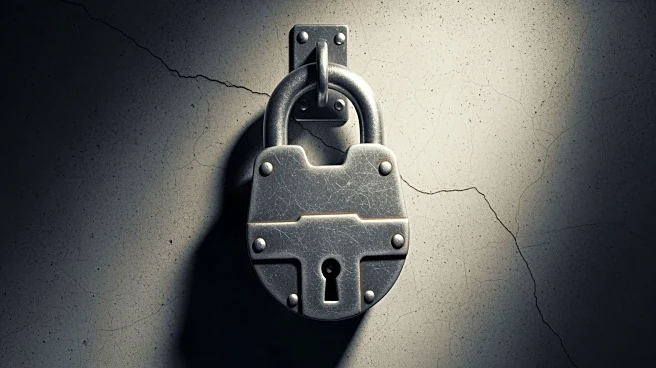What's Happening?
Iran announced the termination of its agreement with the International Atomic Energy Agency (IAEA) to allow nuclear inspections, a decision made after the IAEA board passed a resolution demanding detailed
information on Iran's enriched uranium and nuclear sites. The resolution, supported by France, Britain, Germany, and the United States, was perceived by Iran as a disregard for its goodwill and cooperation. This development follows a series of military actions, including an Israeli bombing campaign and a U.S. airstrike on Iran's nuclear facilities, which President Trump claimed significantly damaged Iran's nuclear program. Despite agreeing to resume inspections in September, Iran has restricted access to key sites, complicating the IAEA's efforts to verify the status of Iran's nuclear materials and facilities.
Why It's Important?
The cancellation of the inspection agreement raises significant concerns about Iran's nuclear capabilities and intentions. The IAEA's inability to verify the status of Iran's nuclear materials could lead to increased tensions and instability in the region, particularly given the potential for military conflict between Iran and Israel. The situation also impacts international diplomatic efforts, as the U.S. and other countries seek to prevent Iran from developing nuclear weapons. The lack of transparency and cooperation from Iran may lead to further sanctions or diplomatic isolation, affecting global security and non-proliferation efforts.
What's Next?
The international community may respond with increased diplomatic pressure or sanctions to compel Iran to comply with the IAEA's demands. The U.S. and its allies might explore alternative strategies to address the nuclear issue, potentially involving negotiations or military options. The situation could also lead to heightened military readiness in the region, as countries prepare for possible escalation. The IAEA will likely continue to seek access to Iranian sites to ensure compliance with the Non-Proliferation Treaty and prevent the diversion of nuclear materials for non-peaceful purposes.
Beyond the Headlines
The ongoing tensions highlight the complex geopolitical dynamics in the Middle East, where nuclear proliferation concerns intersect with regional rivalries and international diplomacy. The situation underscores the challenges of balancing national security interests with global non-proliferation goals. It also raises ethical questions about the use of military force in addressing nuclear threats and the potential consequences for civilian populations. The broader implications for international relations and security frameworks could influence future policy decisions and diplomatic strategies.









